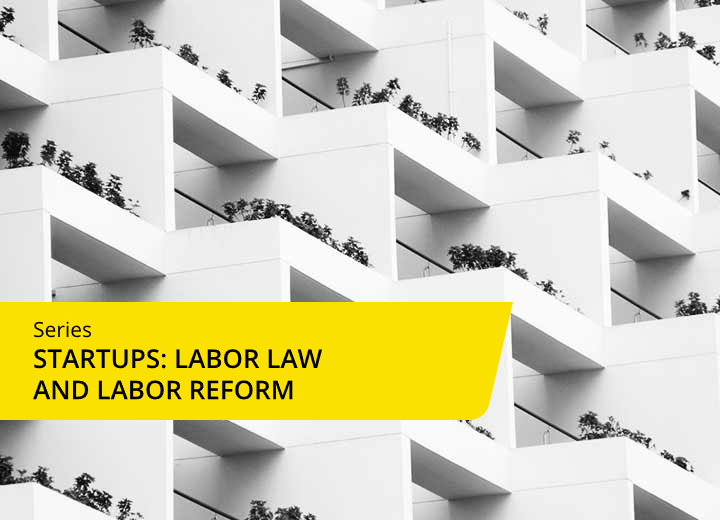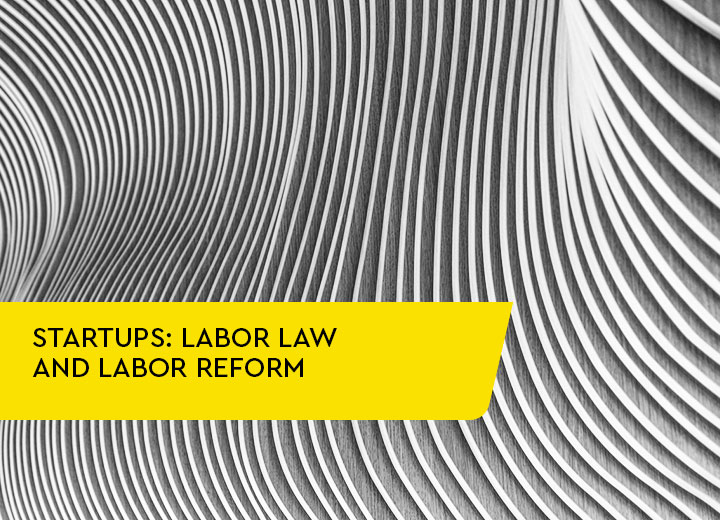Labor and employment
Before the Labor Reform (Law No. 13,467/17), in force as of November 11, 2017, if companies did not grant a full one-hour break for meals and rest, the so-called intra-workday break, they had to pay an entire hour of overtime, even if employees had enjoyed most of this time. That is, employers who granted only 15 minutes were treated in the same manner as employers who granted 45 minutes of meal break.
Brazil has one of the most complex regulatory environments in the world for those who want to start up a business venture, according to the publication Doing Business 2019,1 of the World Bank Group.
Union classification is the means by the which a company defines which union will represent its employees. Currently, only one union represents the employees of one company[1]/professional category (what we call union unity), but this may change.
The head section of article 464 of the Consolidated Labor Laws (CLT) provides that "the payment of salaries shall be accompanied by a receipt, signed by the employee." The sole paragraph of this legal provision provides that "proof of deposit into a bank account opened for that purpose, on behalf of the employee, with the consent of the latter, in a credit facility near the place of work shall be required." In other words, a bank deposit made by the employer into an account opened for this purpose, with the consent of the employee, is equated to a signed payment receipt.
Law No. 13,467/2017, known as the Labor Reform, has been in force for more than a year, but, to date, not all of the amendments it proposed to the Consolidated Labor Laws (CLT) have been reviewed by the Labor Courts. This is the case for the exceptions to salary equalization, such as organized career frameworks and job and salary plans.
Section 11 of the bank employees’ collective bargaining agreement: historical scope and expectations
The Labor Reform (Law No. 13,467/17) brought in various changes to labor law, especially from the point of view of collective rights. One of the most significant issues was the interest shown by the legislator in promoting collective autonomy, whereby it established, among other assumptions, prevalence of what is negotiated over what is legislated and a limitation on accrued rights, with the end of the applicability of collective rules after their abrogation, as previously supported by the case law.[1]
Federal Decree No. 9,571/2018 has been drawing the attention of companies by assuming effective legal rules on liability for the chain of production. The decree stipulates the guidelines on human rights to be adopted by Brazilian and multinational companies of all sizes, in the context of their whole operation.
The Superior Labor Court (TST) granted relief to an appeal filed by a company seeking to recognize as valid a collective bargaining agreement that authorized the use of an alternative system for controlling work hours, in which the employee only records overtime and not the other points of the workday. The decision was rendered on October 9 as part of Case No. 0002016-02.2011.5.03.0011.
The need to create specific breastfeeding areas for employees of shops is a matter that has not yet been settled among the panels of the Superior Labor Court (TST). In September, over a few weeks, the court handed down judgments in diametrically opposed terms, in two cases whose claims were identical: the creation of space for safekeeping, security, and assistance for shop employees.
With the enactment of Federal Law No. 13,467/2017 (the Labor Reform), various provisions of the Consolidated Labor Laws (CLT) have undergone significant changes, and a number of them have been incorporated into social security legislation through specific adjustments in Federal Law No. 8,212/91. Among the topics common to both universes, the controversy over the legal nature and the form of medical care granted by the company to its employees deserves special mention.
In August of this year, the Federal Supreme Court (STF) ruled that outsourcing is lawful in all stages of the production process, be it ancillary or main activities, in deciding Argument of Breach of a Basic Precept (ADPF) No. 324.
One of the greatest labor challenges facing the Brazilian business community today is compliance with the minimum quotas for the hiring of apprentices and people with disabilities or rehabilitated workers.













